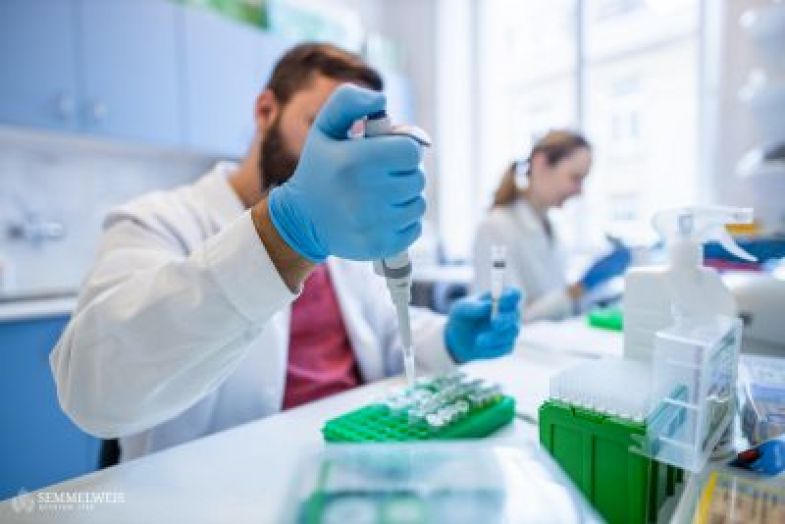
At Városmajor Heart and Vascular Centre, Semmelweis University, an average of fifty heart transplants are performed a year. Until recently, monthly biopsies to screen for rejection episodes have been part of heart transplant patients’ routine surveillance in the year following the surgery. Now, thanks to a molecular diagnostic test introduced into general clinical practice nearly a year ago, a noninvasive blood test can replace heart biopsies to detect signs of transplant rejection. The new test available at the Department of Pathology and Experimental Cancer Research of Semmelweis University, eliminated the need for 150 heart transplant biopsies.
Following a transplant, the immune system recognizes the new organ as foreign. This may lead to an inflammation of the heart and eventually to rejection that can be prevented with immunosuppressive medication. “After a certain point, organ rejection causes irreversible damage; thus close monitoring of patients is crucial”, says Balázs Sax, associate professor at Városmajor Heart and Vascular Centre, head of cardiologists responsible for heart transplant recipients’ care.
Prior to the introduction of the new method, biopsies had to be performed with a device inserted into a blood vessel in the neck and down into the heart muscle a total of 12 times in the year following the transplant.
The samples obtained were examined by pathologists to determine signs of cardiac transplant rejection. This – rather unpleasant – procedure has been replaced by a noninvasive test that is far less taxing on the body. “The new test, introduced at the Molecular Diagnostics Lab of the Department of Pathology and Experimental Cancer Research of Semmelweis University, requires a simple blood draw”, says Tímea Teszák of Városmajor Heart and Vascular Centre, one of the cardiologists responsible for the introduction of the new method in Hungary.
“The new procedure, available only at Semmelweis University in the CEE-region, screens the amount of donor-derived cell-free DNA in the patient’s blood,”
says Csaba Bödör, professor, Department of Pathology and Experimental Cancer Research, Semmelweis University. While increased values may indicate rejection, lower values show that the organ functions well and rejection can be ruled out, he adds. “To determine that, we use a next-generation, high-sensitivity sequencing test using heart transplant recipients’ blood samples”, Bödör notes.
Normally, these samples would be sent to and processed in laboratories in Western Europe and the United States at a high cost and in a longer turnaround time. Yet thanks to a new device installed at the Diagnostics Lab of Department of Pathology and Experimental Cancer Research with the support of GeneTiCA Kft., blood samples can be processed on site in 3 to 4 working days, the professor adds.
With the new diagnostics testing in place, cardiologists will only perform biopsies when donor-derived cell-free DNA values in the blood are increased.
As a result, 150 biopsies have been avoided in the past eleven months, patients did not need to undergo this unpleasant procedure and potential complications have also been prevented.
At the moment, the National Health Insurance Fund of Hungary (NEAK) provides funding for the procedure on a case-by-case basis. In the future, depending on capacities, the pool of recipients may be expanded to lung and kidney transplant patients as well.










